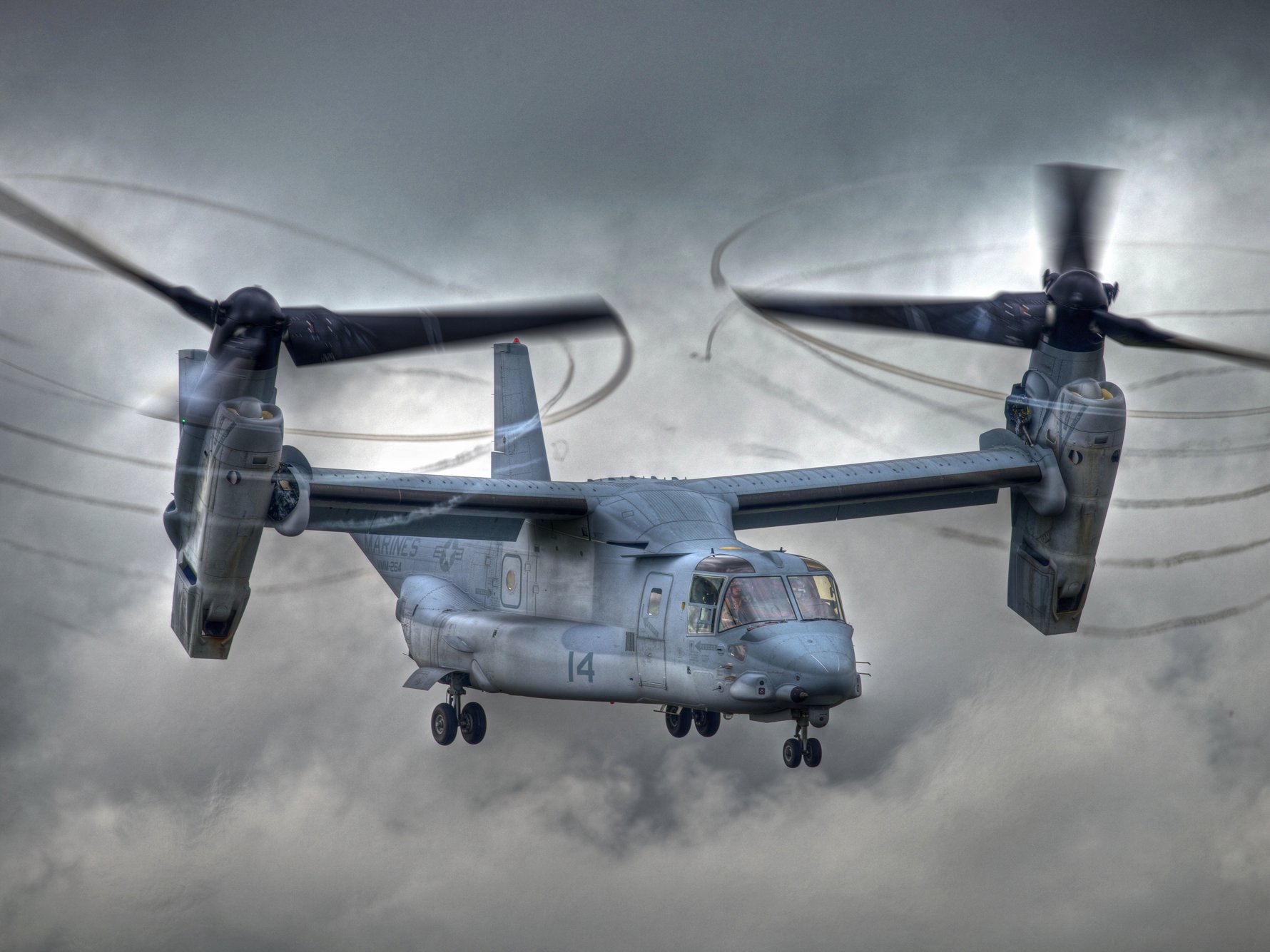If a patent secured by Boeing this week is any indication, the company is eyeing a major change in the way travelers fly. The Seattle Times reports the patent details a passenger plane that takes off and lands vertically like a helicopter via tilting rotors.
The rotors—horizontal for takeoff and landing—rotate to become propellers during flight. Boeing was one of two developers behind the military’s similar V-22 Osprey, which went into service in 2007.

However, the Osprey can only carry up to 24 soldiers. And a prototype for a commercial plane that takes off and lands vertically from Bell—the other developer of the Osprey—can only carry nine passengers, according to Business Insider.
FINALLY, A TRAFFIC LIGHT THAT MAKES DRIVING BETTER
Boeing’s patent calls for a plane that carries 100 passengers. There are other major differences between the Osprey and the plane shown in Boeing’s patent. Boeing’s plane would have four engines housed in its wings instead of two engines housed in the tilt-rotors themselves.
This means less structural reinforcement is necessary. The wings are also positioned lower than the Osprey’s, closer to a traditional commercial plane’s, in order to make maintenance and fueling easier.
A passenger plane that takes off and lands like a helicopter could allow for more regional commercial flights to leave from small airfields, New Atlas reports.
But it’s unclear if Boeing actually plans to build the new plane. “Boeing files tons of patents, so this might not even come to fruition,” a Boeing spokesperson tells Business Insider.
“I’m not saying it won’t.” (The design could have saved Mike Pence a scare last week.)















